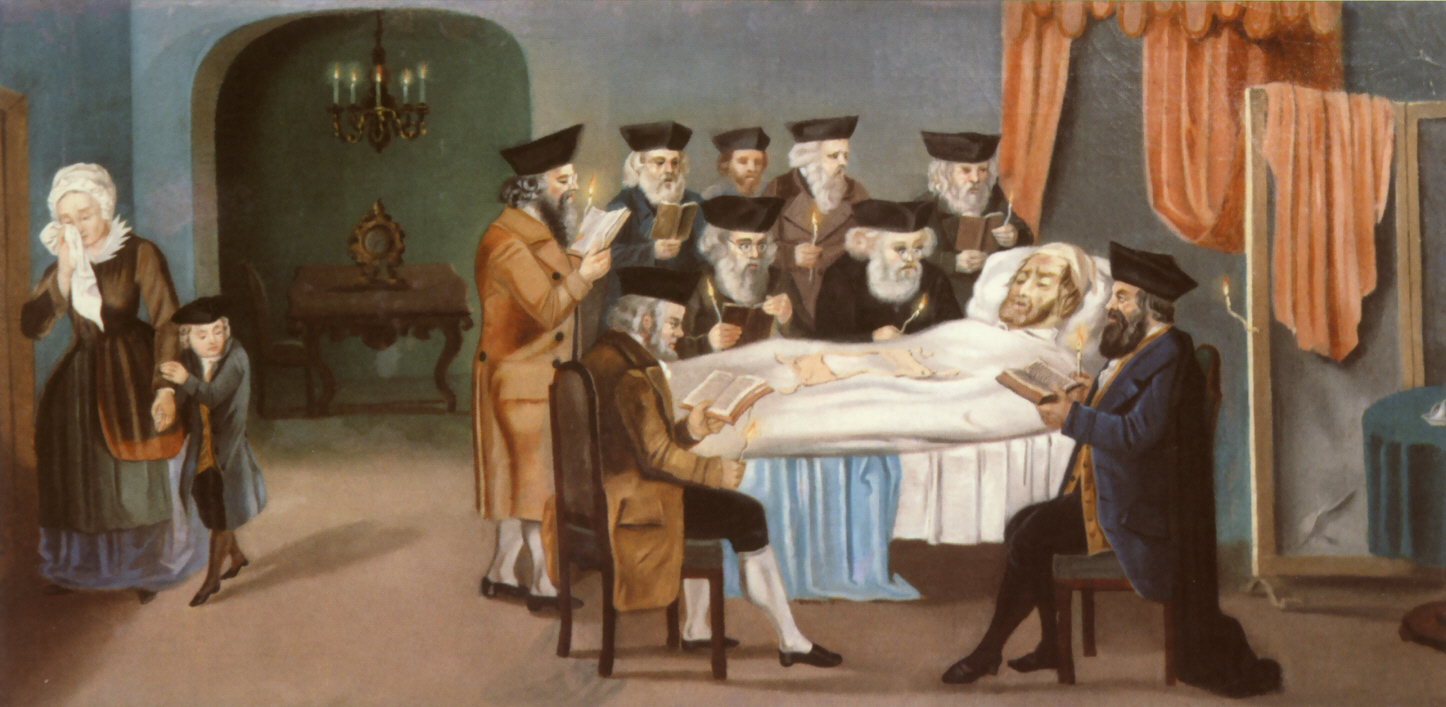Question: I work at a nursing home where we have many Jewish residents. Sometimes I am on duty when one of our Jewish residents dies. What is the proper procedure for dealing with the body of a Jewish person?
–LaShandria, Atlanta
Answer: Thank you for asking, LaShandria. Mourning and burial practices are sensitive issues for people of all religions and cultures, but Judaism places a special emphasis on respect for the dead. Though you’re not responsible for planning a funeral, there are a number of ways that you can make sure that the deceased person is treated honorably, and that the necessary arrangements are made smoothly.
Of course, the first thing to do is to notify the family of the deceased. This should be done immediately, because Jewish law stipulates that Jews should be buried as soon as possible after death, typically the next day. In order for the arrangements to be made in time, it’s imperative that family members are told as soon as possible.

Help us keep Jewish knowledge accessible to millions of people around the world.
Your donation to My Jewish Learning fuels endless journeys of Jewish discovery. With your help, My Jewish Learning can continue to provide nonstop opportunities for learning, connection and growth.
Traditionally observant Jews will not bury someone on Saturdays (Shabbat) or Jewish holidays, and they also may not answer the phone on these days. If you are having difficulty contacting a necessary party and you’re not sure if it’s a Jewish holiday or not, you can check out our listing of holiday dates. When a person dies on a Saturday or a holiday, burial preparations do not begin until the Sabbath or holiday is over.
Once you have notified the family of the deceased, they will likely make arrangements with both a funeral home and a chevra kadisha, a Jewish burial society. Not every Jewish family chooses to use the services of the , but until you know otherwise it’s best to refrain from washing or otherwise handling the body. If a chevra kadisha is used, they will be responsible for washing the body of the deceased in a way prescribed by Jewish law, and dressing the body in the shroud that is used for traditional Jewish burials.
There are a few things to keep in mind while waiting for the body to be retrieved by the funeral home or burial society. Perhaps the most important rule is that a body should never to be left alone. From the time that a person dies until the time that he is buried, Jewish law requires that the deceased be accompanied or watched at all times by a shomer, a guard. This is done mainly out of respect. The rabbis considered leaving a body alone to be an embarrassment to the person who has died, akin to advertising that no one cares about him. So, ideally, when a Jewish resident dies, you should see if there is someone available who can sit with the body until the burial society or funeral home comes to pick it up.
Jewish law considers blood to be part of the body, and therefore deserving of burial. If a person dies because of a wound or injury, and there is blood that soaked into the clothing, that clothing will be buried along with the person. In cases that involve wounds or injuries it is best not to disturb the body, or discard any bloody dressings. These will also be collected by the burial society.
These are the primary issues that you’re likely to face in a nursing home, assisted living facility, or hospital. Additionally, it may be helpful to foster a relationship with someone at a nearby Jewish funeral home so that you can call them with any specific questions you may have. If there is a Jewish chaplain that serves the nursing home, he or she is another good resource you may want to consult regarding Jewish residents.
Sign up for a Journey Through Grief & Mourning: Whether you have lost a loved one recently or just want to learn the basics of Jewish mourning rituals, this 8-part email series will guide you through everything you need to know and help you feel supported and comforted at a difficult time.
Looking for a way to say Mourner’s Kaddish in a minyan? My Jewish Learning’s daily online minyan gives mourners and others an opportunity to say Kaddish in community and learn from leading rabbis.



